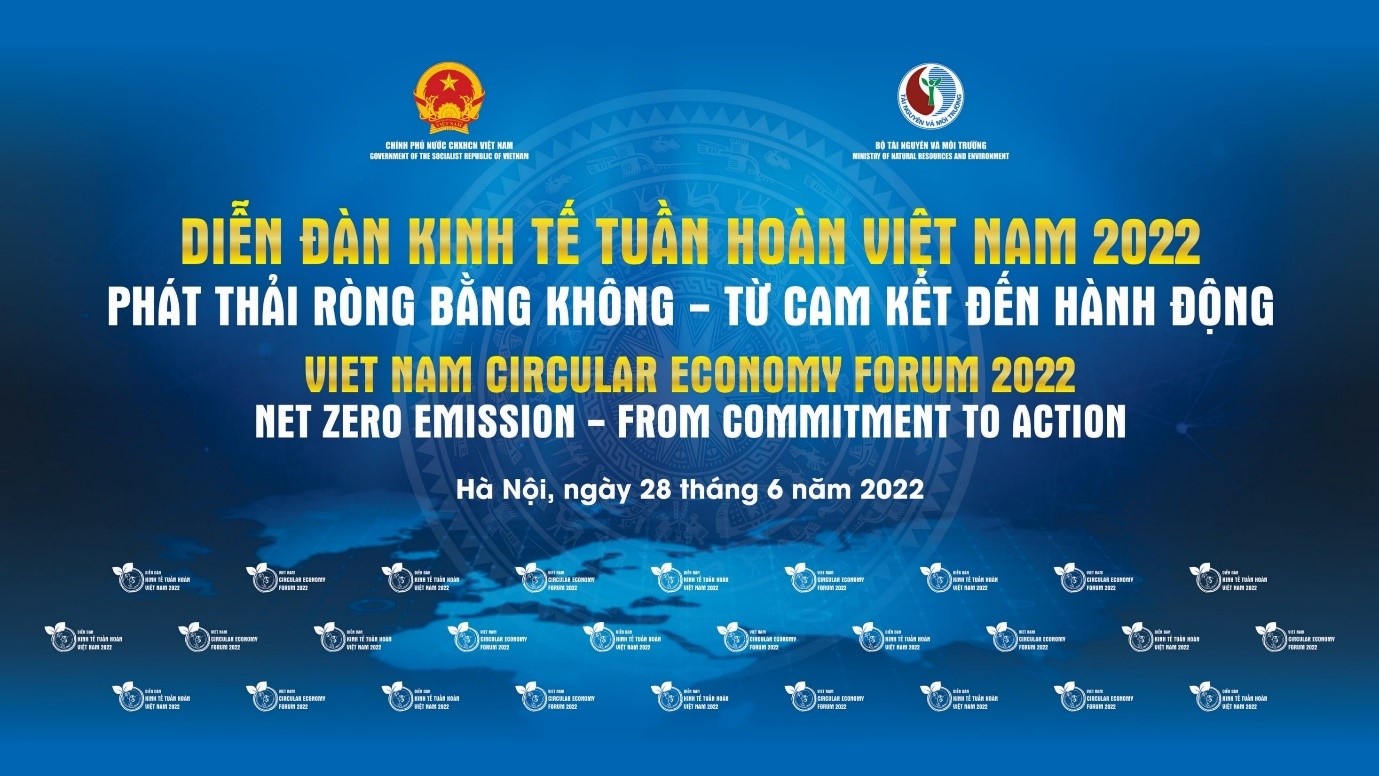Vietnam’s ministries and private sector sit down on circular economy talk
 |
| The Vietnam Circular Economy Forum 2022 illustrates the efforts of key stakeholders to establish a circular economy for sustainable development in Vietnam |
The forum is organised by the Ministry of Natural Resources and Environment in collaboration with relevant agencies. It welcomes nearly 500 delegates, which are representatives of ministries, municipalities, foreign embassies, international organisations, as well as research and educational institutes.
The event’s purpose is to examine feasible circular economic (CE) models for Vietnam in light of the finest regional and global practices. In addition, it will specify the procedures, policies, and financial resources necessary to foster CE in the country.
According to the Asian Development Bank Institute (ADBI), developing Asia's ongoing reliance on fossil fuels and raw materials for manufacturing continues to strain already vulnerable ecosystems.
Vietnam has the second-highest levels of air pollution in Southeast Asia in 2019, as a result of its rapid economic expansion and rising energy consumption, World Bank reported. The challenge is to transition from energy generated from fossil fuels to low-carbon and renewable energy sources while ensuring equitable regional economic growth.
During the forum, a plenary session discussing possibilities to examine the prospects for circular economy development towards net zero emission will be held. The session is categorised into the following four topics:
- Towards a circular economy: Trend of investment shift to rebuilding global economies in the post-COVID-19 context
- Accelerating an inclusive and low-carbon circular economy
- Green transition through the application of circular economy and digital transformation in Vietnam
- Enhancing government-business partnerships in implementing a circular economy in Vietnam
Meanwhile, four panel discussions will look into the promotion of collaboration in CE through networking, financial, and technological resources for CE, as well as the implementation and approaches for minimising the health implications of plastic pollution. Concurrent with the forum, an exhibition demonstrating CE practices will be held.
Asia is home to 17 of the world's 50 biggest landfills, which are evidence of a linear economy that poses significant environmental and health problems, the ADBI reported.
As the region's population is projected to reach 3.0 billion in 2050, waste generation will continue to be a big concern. The World Bank estimated that the 1.2 billion tonnes of municipal solid waste generated in 2016 will increase to 1.5 billion tonnes by 2030 and to 1.9 billion tonnes by 2050.
The shift to circularity offers several economic prospects, including savings from a reduction in the extraction of virgin resources, new job creation, and more cohesive value chains.
The ADBI estimated that it will generate $4.5 trillion by 2030, representing a substantial opportunity for global economic growth. Through service-based business models and longer product life cycles, manufacturers may gain higher value by minimising their demand for virgin material.
The Vietnam Circular Economy Forum 2022 will be hosted offline and online.
- Date: June 28, 2022
- Location: Vietnam National Convention Centre, Thang Long Boulevard, Nam Tu Liem district, Hanoi, Vietnam
What the stars mean:
★ Poor ★ ★ Promising ★★★ Good ★★★★ Very good ★★★★★ Exceptional
Latest News
More News
- Japanese business outlook in Vietnam turns more optimistic (January 28, 2026 | 09:54)
- Foreign leaders extend congratulations to Party General Secretary To Lam (January 25, 2026 | 10:01)
- 14th National Party Congress wraps up with success (January 25, 2026 | 09:49)
- Congratulations from VFF Central Committee's int’l partners to 14th National Party Congress (January 25, 2026 | 09:46)
- 14th Party Central Committee unanimously elects To Lam as General Secretary (January 23, 2026 | 16:22)
- Worldwide congratulations underscore confidence in Vietnam’s 14th Party Congress (January 23, 2026 | 09:02)
- Political parties, organisations, int’l friends send congratulations to 14th National Party Congress (January 22, 2026 | 09:33)
- Press release on second working day of 14th National Party Congress (January 22, 2026 | 09:19)
- 14th National Party Congress: Japanese media highlight Vietnam’s growth targets (January 21, 2026 | 09:46)
- 14th National Party Congress: Driving force for Vietnam to continue renewal, innovation, breakthroughs (January 21, 2026 | 09:42)

 Tag:
Tag:














 Mobile Version
Mobile Version